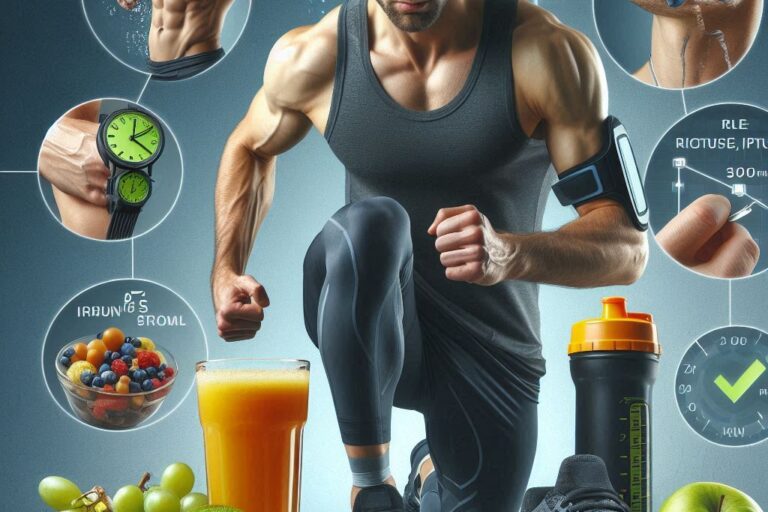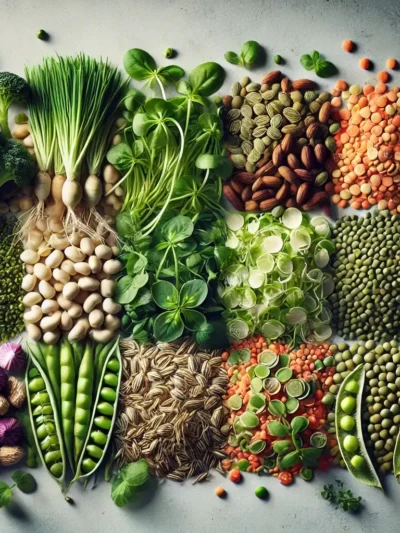Nutritional reeducation It is not a diet; it is a permanent lifestyle change. Adopting healthy habits helps balance the body and achieve physical and mental goals. In addition, it helps prevent diseases and improves quality of life.
Eating a balanced diet doesn’t mean giving up everything you like. On the contrary, it’s about moderating, substituting, and planning meals according to your body’s needs. This approach is sustainable and can be maintained in the long term.
The practice of physical exercises is essential in this process. Among the activities, running stands out for its accessibility and effectiveness. However, before starting, choosing the best running shoes is crucial to avoid injuries and ensure good performance.
The Importance of the Best Running Shoes in Dietary Reeducation
Eating a healthy diet and exercising go hand in hand. Running is an activity recommended by doctors and nutritionists due to its cardiovascular benefits. But to get the most out of this activity, the footwear you wear makes all the difference.
The best running shoes not only improve performance, but also prevent injuries. They provide adequate cushioning, support, and stability, especially for beginners. Choosing the wrong ones can lead to pain and even fractures.
Furthermore, the ideal tennis shoe provides comfort during the activity. This makes exercising more enjoyable, encouraging you to continue. Therefore, investing in the right tennis shoe is an investment in your health and well-being.
How to Choose the Best Running Shoes for Beginners
If you are starting to change your eating habits and want to include running in your daily routine, there are important factors to consider when choosing the ideal running shoes. Here are some things to consider:
- Foot type: Knowing whether your foot type is pronated, supinated or neutral helps you find the right shoe.
- Cushioning: Choose models with good support to absorb impact and protect your joints.
- Correct size: Try on the shoes at the end of the day, when your feet are most swollen.
- Shoe weight: Lightweight shoes are more comfortable and improve performance.
Following these tips will make it easier to choose the model that best suits your needs. Whenever possible, seek guidance from a specialist.
Foods That Boost Running Performance

THE food plays a central role in fitness. Eating the right foods before and after a run can make a difference to your energy and recovery. Some examples include:
- Whole carbohydrates: Provide long-lasting energy.
- Proteins lean: Helps with muscle recovery.
- Fruits: They are rich in vitamins and antioxidants.
- Oilseeds: Source of healthy fats and energy.
Remember to avoid heavy meals before training. Opt for something light and functional to ensure your body has enough energy without discomfort.
The Relationship Between Consistency and the Best Running Shoes
Consistency is essential when it comes to re-educating your eating habits and practicing physical activities. Running regularly helps burn calories, improves your mood and increases your energy levels. However, without regular exercise, you will be able to best running shoes, the journey may be interrupted by discomfort.
Inadequate shoes can cause blisters, pain and even postural problems. In addition, the lack of adequate cushioning puts strain on the joints, increasing the risk of injury. Therefore, investing in quality shoes helps you stay focused and avoid interruptions.
Choosing good sneakers is not a luxury, but a necessity. In the long run, it can also save you money by avoiding treatment for injuries or premature wear.
Tips for Maintaining a Healthy Diet in Your Daily Life
Routine can be challenging, but with organization, maintaining a healthy diet is possible. Here are some practical suggestions:
- Plan your meals: Prepare food in advance to avoid quick, less healthy choices.
- Stay well hydrated: Water is essential for the body to function, especially for those who run.
- Avoid extremes: Don't cut out food groups without guidance; balance is key.
- Consult a nutritionist: A personalized plan can speed up your results.
Benefits of Running and Nutritional Reeducation Combined
The combination of a balanced diet Running brings countless benefits, such as:
- Weight loss: The calorie burn from running enhances the results of nutritional reeducation.
- Mental health: The practice releases endorphins, improving mood and reducing stress.
- Disease prevention: There are improvements in the control of cholesterol, blood pressure and blood sugar.
Together, these habits build a healthier, happier life.
The results of this combination go beyond aesthetics. See the main benefits:
- Physical health: Weight reduction, improved resistance and control of chronic diseases.
- Mental health: Reduced anxiety and increased self-esteem.
- Longevity: Prevention of heart and metabolic diseases.
- Daily arrangement: More energy to face everyday challenges.
Eating a healthy diet is a commitment to your health and quality of life. Combined with running, it transforms your body and mind. However, remember that the best running shoes are essential to ensure safety, comfort and motivation.
Start slowly, respect your limits, and invest in footwear that offers adequate support. This way, you’ll be prepared to achieve your goals and maintain healthy habits in the long run.

Worrida and Pre and Post-Workout Nutrition: Optimize Your Performance
Running is a physical activity that brings considerable benefits, but requires specific care with nutrition to ensure energy, recovery and prevent injuries. Learn how to prepare your body for long runs, understand the role of electrolytes and choose the best foods for muscle recovery.
How to Prepare Your Body for Long Runs
- Plan meals in advance:
Before long runs, it’s best to eat a meal rich in slow-digesting carbohydrates, such as sweet potatoes, oatmeal or brown rice, 2 to 3 hours before your workout. These provide sustained energy. - Bet on simple carbohydrates before training:
30 to 60 minutes beforehand, eat something light and quick, such as a banana or a slice of bread with honey. This will help prevent fatigue during the run. - Hydrate yourself especially:
Drink water throughout the day before and consider including an electrolyte drink if your workout lasts longer than an hour. Proper hydration ensures better performance.
The Importance of Electrolyte Programming
Electrolytes — such as sodium, potassium, calcium and magnesium — are essential for maintaining fluid balance in the body, preventing cramps and improving muscle contraction.
- Why are they important?
During running, the body loses minerals through sweat. Replenishment is crucial, especially during long training sessions, to avoid dehydration and a drop in performance. - How to report electrolytes?
- Coconut water: Natural and rich in potassium.
- Isotonic drinks: Excellent for workouts lasting more than 60 minutes.
- Salty snacks: Such as nuts or small pieces of dried fruit with salt.
Tip: Avoid very sugary drinks, as they can cause gastric discomfort during the race.
Foods that Help with Muscle Recovery
After a workout, your body needs nutrients to repair muscles and replenish energy stores. Combine carbs and protein within 30 minutes of running to maximize recovery.
- Proteins for muscle protection:
- Grilled chicken or fish.
- Boiled eggs.
- Natural yogurt or whey protein.
- Carbohydrates to replenish energy:
- Quinoa, brown rice or pasta.
- Sweet potato or pumpkin.
- Fruits such as banana, mango or watermelon.
- Fats good for fighting inflammation:
- Avocado.
- Oilseeds (chestnuts, walnuts).
- Extra virgin olive oil.
- Post-workout hydration:
- Drink water with a pinch of sea salt to report the sound.
- Smoothies with fruits and vegetables are great for rehydrating and providing nutrients.
Example of Pre and Post-Workout Meals
Before the race:
- Breakfast: Oatmeal porridge with honey, red fruits and squeak.
- Quick snack: A banana with peanut butter.
After the race:
- Main meal: Grilled chicken fillet, brown rice and sweet potato puree.
- Post-workout snack: Whey protein, banana and coconut water smoothie.
Conclusion:
Combining a balanced diet, proper hydration and strategic pre- and post-workout food choices is essential to improving muscle performance and recovery. With planning and consistency, you will ensure lasting results and make the most of the benefits of running! 🏃♂️💪
Running and Nutrition
| Question | Response |
|---|---|
| What to eat before a long run? | Consume slow-digesting carbohydrates (sweet potatoes, oatmeal) 2 to 3 hours before your run. Before your run, choose a simple carbohydrate, such as a banana or honey. |
| How important is hydration? | Hydration maintains physical performance, prevents dehydration, and improves recovery. Consider sports drinks to replenish electrolytes after long workouts. |
| Why are electrolytes essential? | They balance body fluids, prevent cramps and optimize muscle function. Foods like coconut water and salty snacks help replenish fluids. |
| What to eat after running? | Combine proteins (chicken, fish or eggs) with carbohydrates (brown rice, sweet potatoes) and good fats (avocado, nuts) to help with muscle recovery. |
| How long in advance should I eat? | Eat a main meal 2 to 3 hours before your workout and a light snack 30 to 60 minutes beforehand. |
| What foods help with recovery? | Chicken, fish, quinoa, bananas, avocados, nuts and smoothies with whey protein are excellent options. |
| Can I run on an empty stomach? | It is possible, but it depends on the goal and the running time. For long training sessions, a light snack beforehand is recommended to ensure energy. |
| What drinks are ideal during the race? | For workouts longer than 60 minutes, isotonic drinks or coconut water help to replace electrolytes and prevent dehydration. |
| What to avoid before the race? | Avoid very heavy meals, foods rich in fat or fiber, which can cause gastric discomfort during training. |
| How long after running should I eat? | Ideally, you should consume carbohydrates and proteins within 30 minutes of running to maximize muscle recovery. |









